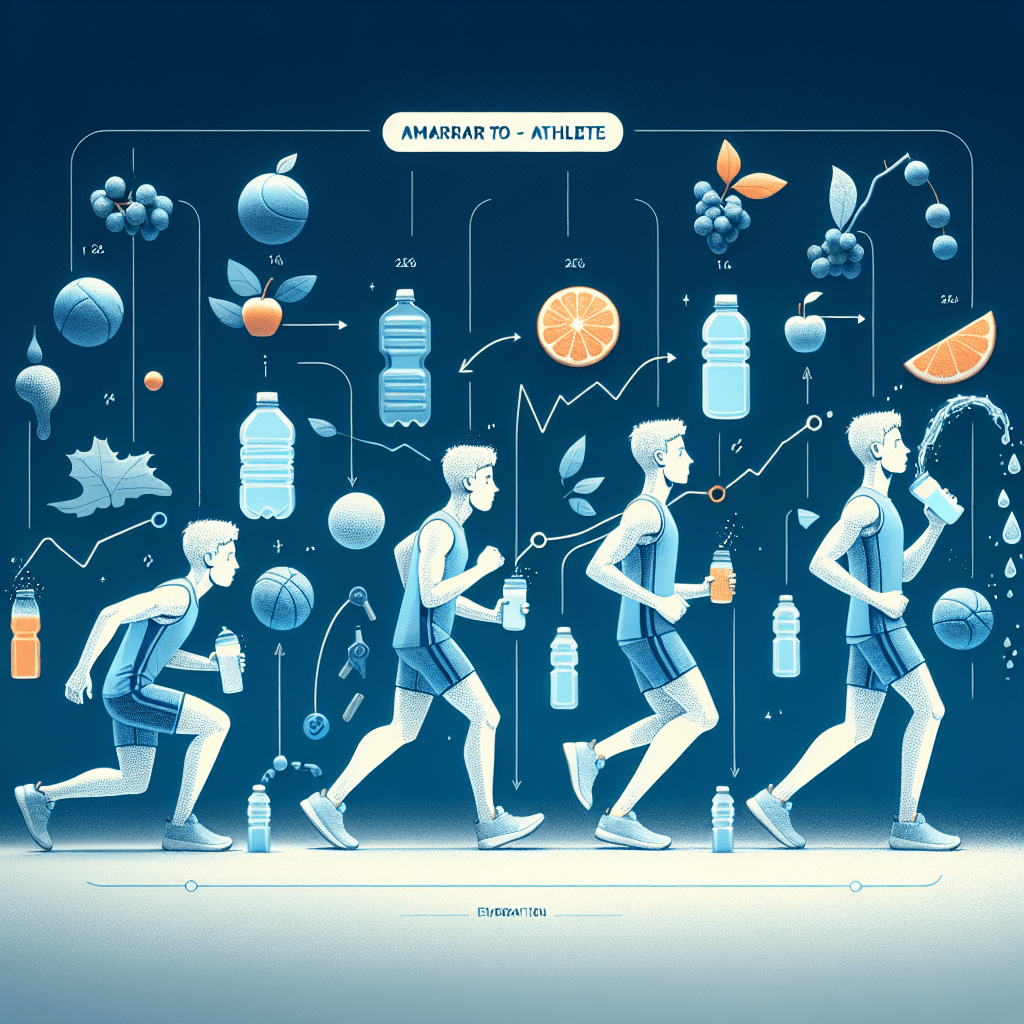From Amateur to Athlete: Hydration Tips Every Sports Enthusiast Should Know

The Importance of Hydration in Sports
Whether you're just starting your fitness journey or are a seasoned athlete, hydration should be at the top of your list of priorities. Staying hydrated is essential for maintaining optimal performance and preventing injuries. As the American College of Sports Medicine notes, "Adequate fluid intake before, during, and after exercise is important for health and optimal performance."
"Adequate fluid intake before, during, and after exercise is important for health and optimal performance." - American College of Sports Medicine
Understanding Dehydration
Dehydration occurs when you lose more fluids than you take in, causing your body to operate less efficiently. This can lead to a multitude of health problems, including heatstroke, kidney failure, and even seizures. Dehydration can also negatively impact your athletic performance, causing muscle fatigue, reduced coordination, and decreased energy levels.
How Much Should You Drink?
The amount of fluid you need to consume can depend on several factors, including the intensity of your workout, the weather conditions, and your individual sweat rate. However, a general rule of thumb is to drink at least half your body weight in ounces of water each day. This means that if you weigh 150 pounds, you should aim to consume at least 75 ounces of water daily.
Hydration Tips for Athletes
Staying hydrated doesn't have to be complicated. Here are some simple tips to help you maintain optimal hydration levels:
1. Drink plenty of water throughout the day, not just during your workouts. This will help keep your body hydrated at all times.
2. Don't wait until you're thirsty to drink. By the time you feel thirsty, you may already be dehydrated. Make it a habit to drink regularly, even if you don't feel thirsty.
3. Replenish your electrolytes. When you sweat, you lose not only water but also important electrolytes like sodium and potassium. Consuming sports drinks or foods rich in these nutrients can help replenish them.
"Don't wait until you're thirsty to drink. By the time you feel thirsty, you may already be dehydrated." - Anonymous
The Role of Hydration in Heart Health
Hydration is not only important for athletic performance but also for heart health. When you're dehydrated, your heart has to work harder to pump blood, which can lead to increased heart rate and blood pressure. In fact, a study published in the European Journal of Nutrition found that even mild dehydration can impair vascular function.
"Even mild dehydration can impair vascular function." - European Journal of Nutrition
Conclusion
Regardless of your level of athleticism, staying hydrated is crucial for maintaining optimal performance and promoting heart health. By understanding the signs of dehydration and implementing strategies to stay hydrated, you can ensure that your body is always ready to perform at its best.
"Hydration is the key to fitness. Dehydration is the enemy of performance." - Anonymous
Summary
Hydration plays a vital role in sports performance and heart health. Dehydration can lead to serious health problems and impair athletic performance. Athletes should aim to drink at least half their body weight in ounces of water each day and replenish lost electrolytes. Regular hydration, even when not thirsty, is recommended. Hydration is not only essential for athletic performance but also for heart health, as dehydration can increase heart rate and blood pressure.



